 Petzlover
Petzlover Both American Polydactyl and Domestic Mediumhair are originated from United States. Both American Polydactyl and Domestic Mediumhair are of same weight. American Polydactyl may live 4 years less than Domestic Mediumhair. Both American Polydactyl and Domestic Mediumhair has same litter size. American Polydactyl requires Low Maintenance. But Domestic Mediumhair requires Moderate Maintenance
Both American Polydactyl and Domestic Mediumhair are originated from United States. Both American Polydactyl and Domestic Mediumhair are of same weight. American Polydactyl may live 4 years less than Domestic Mediumhair. Both American Polydactyl and Domestic Mediumhair has same litter size. American Polydactyl requires Low Maintenance. But Domestic Mediumhair requires Moderate Maintenance
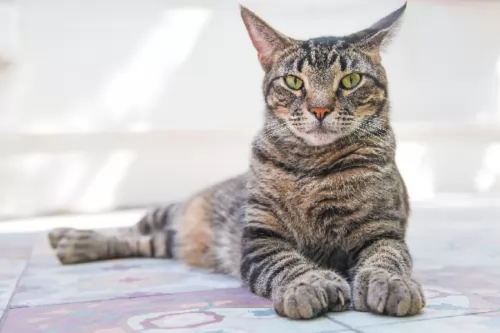 It is believed that this unusual cat came to the United States on ships – kept by sailors who thought of them as a good luck charm and to keep the mice population under control.
It is believed that this unusual cat came to the United States on ships – kept by sailors who thought of them as a good luck charm and to keep the mice population under control.
These unusual cats became popular in the 1800s as ship cats but the cats soon began to be seen in port cities on the Eastern coast of the United States as well as Canada, and their numbers began to increase.
It is also believed these interesting cats were brought specifically to the Boston area.
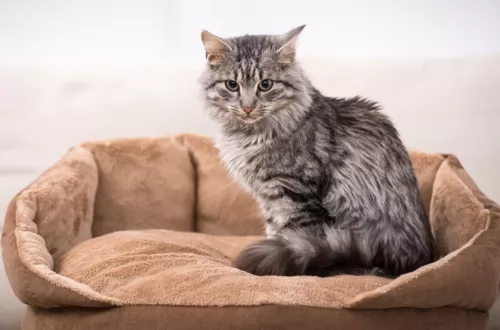 It is unclear as to whether the Domestic Mediumhair comes from Egypt, Europe or the USA.
It is unclear as to whether the Domestic Mediumhair comes from Egypt, Europe or the USA.
It is a mixed breed cat that no one can be sure how it's going to look. It is why they are often referred to as mutts and you’ll likely find them in animal shelters.
It was thought they arrived in America with the Pilgrims, who brought them aboard the ships to take care of the rodent population. Mixed breeding between many generations of cats brought about the Domestic Medium Hair.
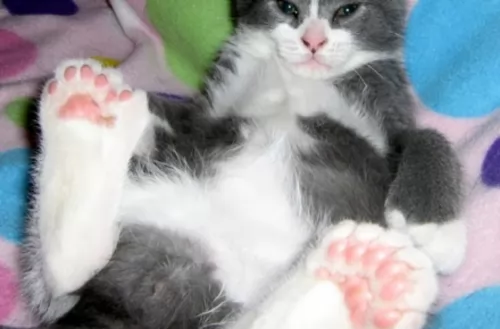 The Polydactyl cat is unusual in that the cat has been born with something odd about it. It has more than the regular number of toes on just one or more of its paws.
The Polydactyl cat is unusual in that the cat has been born with something odd about it. It has more than the regular number of toes on just one or more of its paws.
Normal cats have a sum of 18 toes, with 5 on the front and 4 on the back but with Polydactyl cats you may find as many as 9 digits on their front and back paws.
American Polydactyl cats are medium to large in size with strong, muscular bodies. The cat can weigh up to 6kg. The head is broad, the ears wide-set and pointed and the coat can be any color, pattern and length.
These cats are easy-going, relaxed, and social. They’re hardy too and they’re able to enjoy being outdoors and indoors.
They’re affectionate with their human family and are also playful and energetic. It is prepared to be friendly with dogs and children too, but it is also able to act independently and get on with things. The Polydactyl cat is distinctive but also a very popular cat breed.
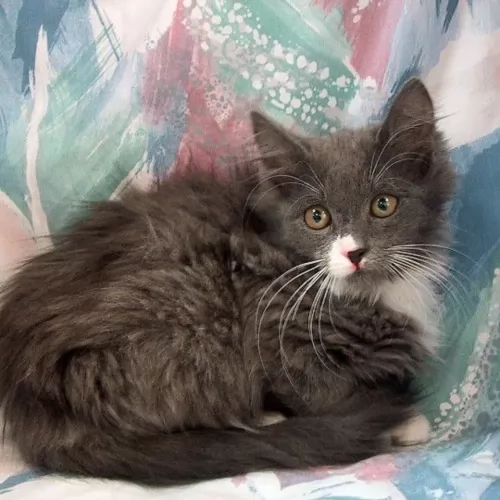 This is a medium-sized cat that weighs in the region of 3 – 6kg. They stand at about 30cm in height but there is no set standard with these cats and their looks and temperaments can vary.
This is a medium-sized cat that weighs in the region of 3 – 6kg. They stand at about 30cm in height but there is no set standard with these cats and their looks and temperaments can vary.
It's a medium built cat, not too thick-set or not too slight. The medium-length coat is thick and double-coated and can be in every color and pattern, including tabby and tortoiseshell.
The eyes can be different shades and the ears large or small too while the tail can also vary in length and bushiness.
Because the Domestic Medium Hair is of mixed ancestry, their temperaments can vary. Some are quiet and docile while other can be very energetic and have a lot to say. Most of them are loving, loyal cats that get on well with childre and other pes in the house. Some are also more independent than others, but a lot can deped on the way you bring your cat up.
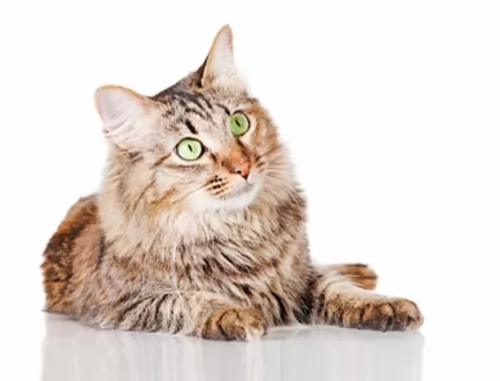 Domestic Medium Hairs come in so many different shapes, sizes and personalities. You’ll also find lots of colors, patterns and personalities with this cat as much depends on the cat’s ancestry.
Domestic Medium Hairs come in so many different shapes, sizes and personalities. You’ll also find lots of colors, patterns and personalities with this cat as much depends on the cat’s ancestry.
Even when you choose a kitten, you can’t really know what you’re going to get – large or small, lively or quiet, independent or needy – its what makes owning a Domestic Mediumhair so fascinating.
One thing every one of them has in common is that they love their human family and they deserve to all receive unconditional care and companionship.
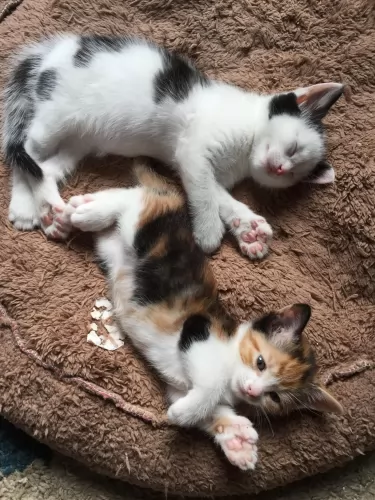 With good care, these cats can live to be between 14 and 16 years of age. You need to be diligent with keeping this cat’s nails trimmed because depending on the placement of the toes, the nails could become a nuisance, growing in the wrong direction and cutting into he cat’s flesh.
With good care, these cats can live to be between 14 and 16 years of age. You need to be diligent with keeping this cat’s nails trimmed because depending on the placement of the toes, the nails could become a nuisance, growing in the wrong direction and cutting into he cat’s flesh.
Keep the nails trimmed as necessary. To avoid possible injury to your pet, your veterinarian can safely trim your cat’s claws.
Always pay attention to your cat's behavior as well as taking note of your cat when you groom him as both are good ways to discover whether anything is amiss with your polydactyl cat.
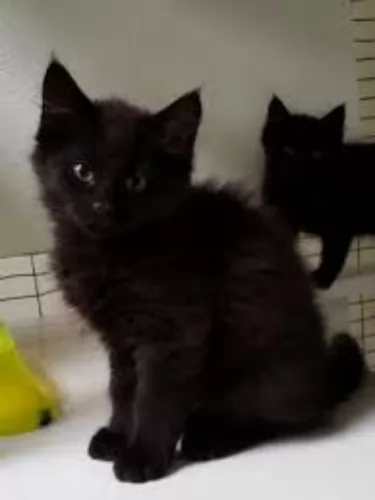 With the Domestic medium hair cat having a mixed ancestry, they are cats that don’t easily succumb to illness.
With the Domestic medium hair cat having a mixed ancestry, they are cats that don’t easily succumb to illness.
You’ll find that the health issues that are common to this cat are typically common to all cat breeds. Some of these typical illnesses are diabetes, kidney disease, obesity, dental problems and hypertrophic cardiomyopathy, a heart disease.
All these illnesses can shorten your cat's life. Gut health is of critical importance so be sure to provide your cat with a top-quality diet.
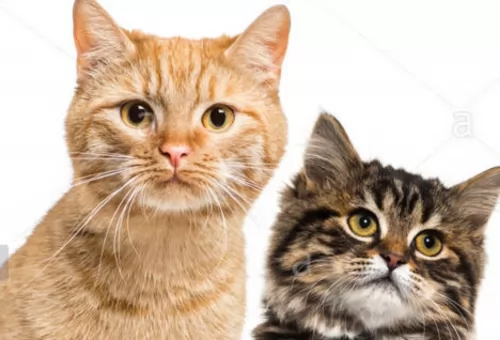 Keep an eye on your cat’s paws as their extra toes can make it that they are at a higher risk of hooking on a carpet or some other material, but this can be managed with regular nail trimming.
Keep an eye on your cat’s paws as their extra toes can make it that they are at a higher risk of hooking on a carpet or some other material, but this can be managed with regular nail trimming.
Provide your cat with all the things he needs to make his life pleasant while in your care. He’ll need feeding and drinking bowls, a nice warm, dry bed, a litter box, stimulating toys, and things such as a scratching post and cat climbing tree.
Cats are meat-eaters, and they need protein from meat for health. Some cooked chicken and beef can be a real treat for your pet. Grains and carbohydrates should only play a very small role in your pet’s diet. Too many grains can lead to malnutrition and obesity as well as problems with your cat's organs.
Always take into account your cat’s age because different life stages mean different energy levels and therefore different nutritional needs.
Take your sick cat to the vet when you see he is not his usual self. Make sure you keep up to date with all his vaccines and anti-parasite treatments.
One of the most important health decisions you’ll make for your Polydactyl cat is to have your pet spayed or neutered. The procedure is common and performed in your vet’s office every day.
It offers lifelong health benefits. It improves your pet’s behavior and keeps them close to home too. Spaying a female cat will prevent uterine infections and breast cancer, and for males, it can prevent testicular cancer.
Best of all, it helps to prevent yet more kittens into a world overrun with stray cats and rescue centers jam-packed with unwanted kittens and cats.
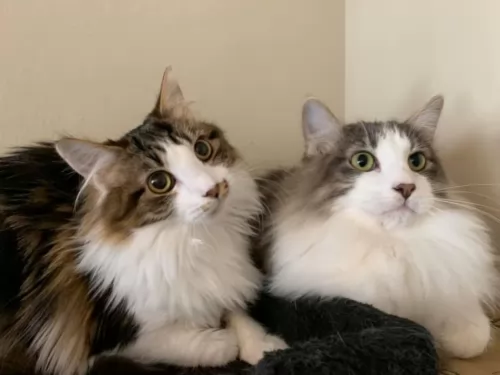 The Domestic Medium Hair has a thick, double coat, and to avoid hairballs and matting, he will need to be brushed at least once a week. Set aside this brushing time to examine your cat’s eyes, the inside of his ears, inside his mouth for bad teeth, to check the length of his claws and to feel for unusual new lumps.
The Domestic Medium Hair has a thick, double coat, and to avoid hairballs and matting, he will need to be brushed at least once a week. Set aside this brushing time to examine your cat’s eyes, the inside of his ears, inside his mouth for bad teeth, to check the length of his claws and to feel for unusual new lumps.
Your cat's diet is as important as life itself. Your cat is a carnivore and should be fed meat. He won’t do well on carbs. Speak to your vet if you’re unsure about how to feed your cat.
Meanwhile, there are some excellent commercially manufactured cat foods on the market and if you choose the best ones with meat at the top of the ingredients list, you can be doing the right thing.
Kittens start with 4 meals a day while the older cat will do well on 2 meals a day. It is most important to feed your kitten the very best food – the correct diet – because their bones, brain, coat and energy all depend on this for the rest of their lives.
Remember too that there are cat foods that cater to the different seasons of your cats life. A kitten, young adult, energetic breed, pregnant cat, a cat with disease, and a senior cat will all have a choice of foods made by the top brand cat food manufacturers. Each food caters specifically for the cat’s unique needs.
Keep your cat's vaccines and de-worming up to date. Parasites left unchecked can make your cat sick.
You can provide your cat with all the best food, toys, comfy bedding and medical care you like, but if you don’t provide him with love and attention, it will all be in vain.